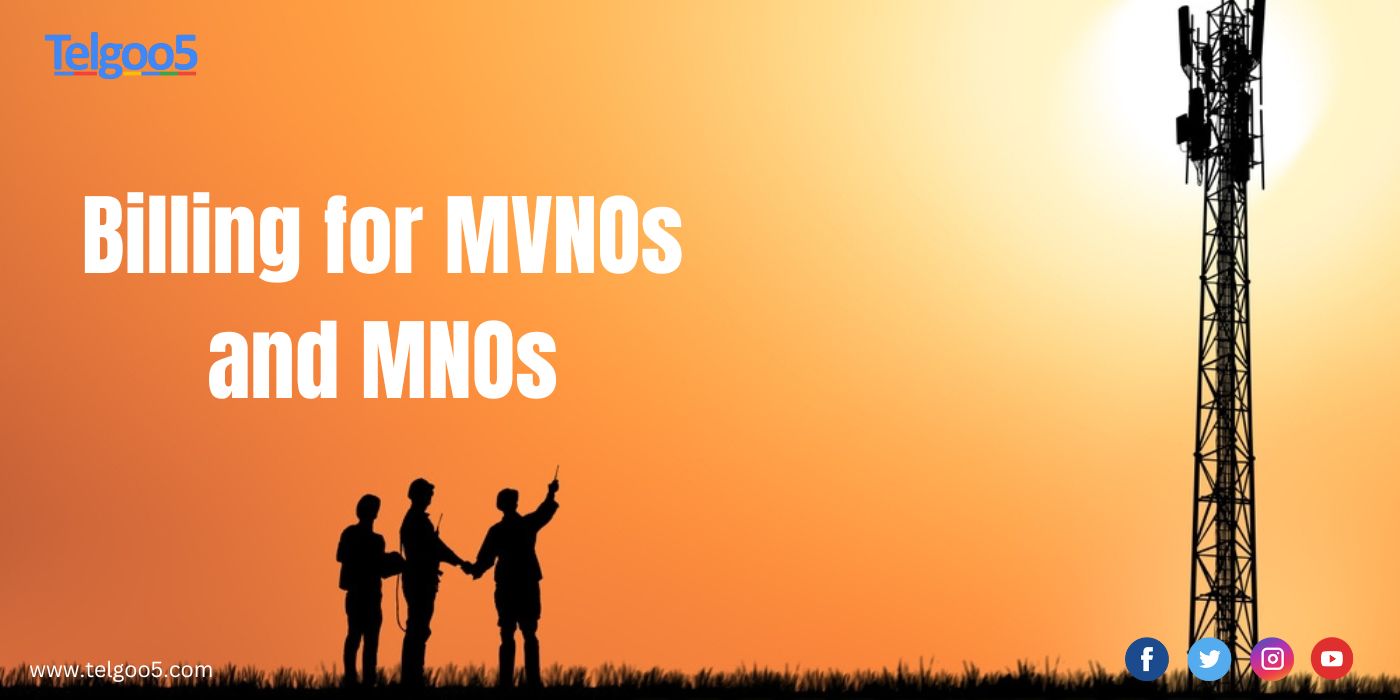
Billing for MVNOs and MNOs
MVNOs and MNOs offer communication services to their subscribers, even though MVNOs have to buy bulk minutes and data from MNOs to cater to their users. MVNOs and MNOs perform similar functions, such that most users do not know that MVNOs need to purchase bulk packages from MNOs to cater to them. They perform functions such as;
-
Issuing and activation of SIM cards
-
Have branding and marketing
-
Billing
-
They set their tariffs
-
Offer customer care and support to subscribers
It is important for the two network providers to have a billing system due to the services they offer to their subscribers. MVNOs rely on MNOs’ interconnect billing services.
Interconnect billing system for MVNOs
Most MVNOs depend on the MNOs’ Interconnect billing system because they do not have their own. The interconnect billing system keeps track of income, spending, and the demand for airtime. Since the MNO will have a part in the operations of the MVNO, they can outsource to an independent vendor. The vendor who will keep track of how data is being processed will help to ensure that both the MNOs and MVNOs get a fair share of their earnings.
When MVNOs receive incoming calls, they charge the MNOs a fee that is less than the airtime charge. The fee charged can be termed an interconnect termination fee. The termination fee of both the MNO and the MVNO is similar to the fee charged to the operator.
In case of an outgoing call, the MNO will receive an imposed payment that is less than the airtime charge by the terminating operator.
MNOs
In the present day, for any business to maximize the profits it is making day in and day out, it needs to have a billing system that will help charge prepaid services. More and more people are purchasing smartphones and using them for data. Previously, many mobile users would spend a lot of their funds on voice calls and messages; however, there has been a change. In the era where everyone is on their laptops, tablets, smartphones, and other internet devices, data is likely to be what most users spend the most on.
That is why network operators put up good billing systems that help them track their earnings and record their clients’ information. Cloud-based systems and the Internet of Things help with billing operations.
MVNOs
MVNOs have been in operation for several decades now, and even though there have been speculations that they would run out of the market, they are still growing. In certain countries, MVNOs are dominant. MVNOs still depend on MVNEs to act as intermediaries. Those who can predict the future based on their careful analysis speculate that MVNOs are moving towards a massive digital transformation whereby they can control their data by owning it and managing their billing systems.
MVNOs can either choose to;
-
Buy bulk services at wholesale prices from MNOs, brand them, and then resell them to their subscribers.
-
Brand their services and make them available for users to purchase, with MVNEs helping them to provide the services to end-users at a fixed commission.
-
Sell their products and services and pay the MVNE based on their end-users’ profits.
Regardless of their options, MVNOs will still be expected to pay a deposit to the MVNE, followed by monthly payments.
Since both network operators offer various services, billing is not an option but a requirement. MNOs can carry out their own billing to keep track of their business’s progress. MVNOs, on the other hand, will require MVNEs to act as intermediaries between them and the end-users. MVNOs should be able to choose which option will work best for them regarding their billing requirements.
Contact us today to get a consultation!
Send us a message to get answers to any of your questions & we'll get back to you within 24-48 hours or as soon as possible.
